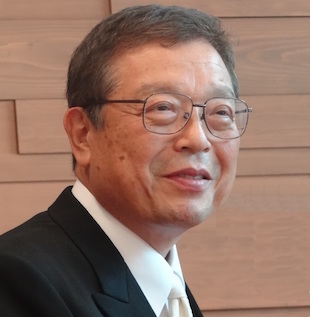TOKYO (IDN) – In March 2013, I established DEVNET Tokyo, now DEVNET Japan, as this East Asian country’s sole branch of Devnet International, which enjoys since 1995 a Consultative Status with the United Nations Economic and Social Council (ECOSOC).
Before launching Devnet Tokyo, I was engaged as an entrepreneur in manufacturing, processing, sales and distribution with focus on agriculture, fisheries, livestock and forest industries. Based in my hometown in the Yamaguchi prefecture in Japan, I had expanded my business and built a huge distribution network worth more than 55 billion yen (approximately $4.5 billion) annual turnover at the peak time. SPANISH | GERMAN | HINDI | JAPANESE
As an entrepreneur, I have been working closely with local, domestic and foreign governments. Receiving the support from many stakeholders, I have built a wide network of contacts in various fields. Now they have become an important asset to me – in fact in recent years, I have been possessed by a strong wish to take advantage of those contacts on a huge scale and contribute my share to supporting the United Nations in achieving its sustainable development goals.
I am inspired by the fact that not only in Japan but also in other industrialized countries as well as in the developing world, people are motivated by global concerns. I am deeply impressed by Devnet International’s focus on themes such as poverty alleviation, increasing food production, humanitarian relief, environmental protection, dissemination of advanced technology and energy conservation, women entrepreneurs’ support and improvement of women’s status, and a sustainable development of the society. Therefore, I decided to support the United Nations in its efforts towards sustainable global development.
My experiences as an entrepreneur and my contacts stretching over several years have helped me gain enormous experience in those themes. I learnt, for example, that investment by financially strong companies together with support by the government of a country and experts who actually support a project are key to a successful development project in a developing country.
Although it’s a bit old story now, I supported the Saemaul Movement, also known as the New Village Movement, aimed at modernizing the rural South Korean economy.
We deployed a rural network and created a fertile ground for corporate establishment; and eventually we pushed Korea to the most advanced network country in Asia. Behind this success were the low-interest loans from Japan by way of the country’s official development assistance (ODA), a matching financial contribution by the South Korean government, participation of South Korea’s big companies such as Samsung, coordination by the Korean government and cooperation with the country’s excellent engineers.
Currently, Devnet Japan has been promoting projects such as large-scale agriculture, fisheries, livestock and forests as well as commerce and industry. We are focusing particularly on a large-scale agricultural plan in Laos. Taking advantage of the vast land in hot and humid southern Laos, this project aims to cultivate and harvest various agricultural crops such as soybeans to help increase food production, alleviate poverty relief through job creation as well as building a sustainable developing regional society.
What is essential to these plans is also the training of executive talent and provision of local development funds. Although the development of human resources urgently calls for technology transfer to promote the modernization of the developing countries, it is important to provide technical training (in 72 industries on 130 jobs) and accept foreign students (professionals, master degree holders and doctoral degree holders among university graduates) in Japan. I intend to support them to start their own companies when they return home after acquainting themselves with technology and know-how in Japan.
As regards a concrete frame of entrepreneurial support in the home countries of trainees, on the premise that they intend to establish a joint venture with Japan, they could be given full support in terms of assessment of a business environment, financing and investment from us as well as the Japan International Cooperation Agency (JICA) and the Japan Bank for International Cooperation (JBIC).
Moreover, we assume that a joint venture company to be entrepreneurial would be a relatively small one with an annual turnover of about 300 million yen ($2,913,000). We will provide consultation for them to be able to ensure a net profit of about 30%. From their profit by operating a joint venture, we will get about 50% as a dividend and we will use part of it to establish a foundation (tentative name: UN Akegawa Fund). This fund will re-invest in the young entrepreneurs from Asia that have the same aspirations. I would like to set a target value of supporting 10,000 new entrepreneurs in the next 10 years.
We think our contribution, based on Devnet’s focal themes – such as the development of human resources so as to enable executives and engineers set up businesses in developing countries, consultancy involved in entrepreneurial finance and management, and support of sustainable economic activity – can be provided by building a concrete sustainable economic framework in the developing countries and steadily promote and strengthen it. This would be our contribution to the society that we can and we think it will provide a stable base to establish a sustainable society. (22 December 2015)
Photo: Fumiyasu Akegawa | Credit: DEVNET Japan
Related article: Learning from Korea’s ‘Saemaul Undong’ to Achieve SDGs
This article is part of IDN’s media project jointly with Global Cooperation Council and DEVNET JAPAN.

